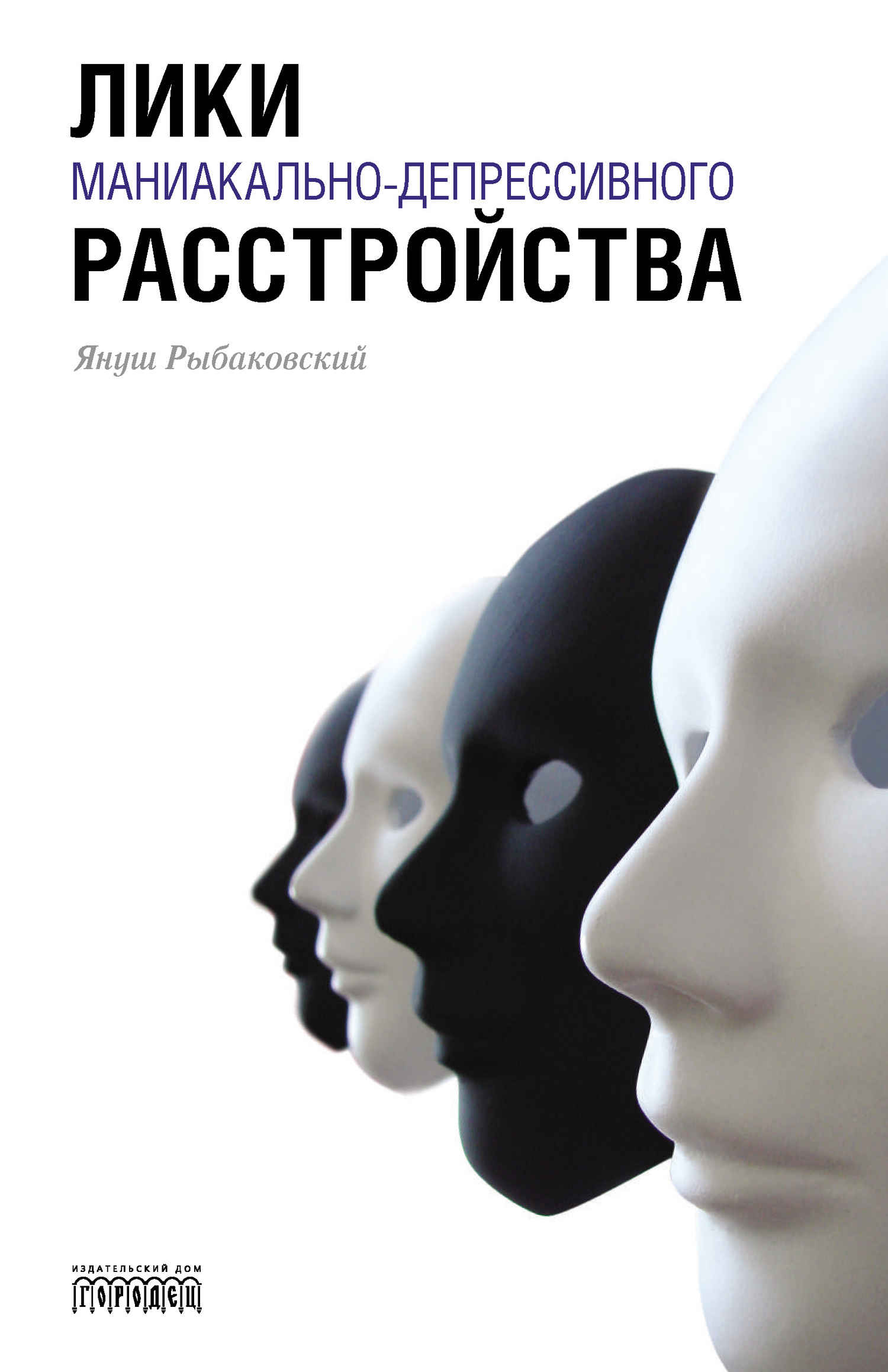disorder and lithium. British Journal of Psychiatry 1972; 121: 391–392.
25. Barron F. Barron-Welsh Art Scale. A Portion of the Welsh Figure Preference Test. Consulting Psychologists Press, Palo Alto, California, 1963.
26. Bartrop R., Luckhurst E., Lazarus L. et al. Depressed lymphocyte function after bereavement. Lancet 1977; 1: 834–836.
27. Bauer M.S., Mitchner L. What is a «mood stabilizer»? An evidence-based response. American Journal of Psychiatry 2004; 161: 3-18.
28. Baum A.E., Akula N., Cabanero M. et al. A genome-wide association study implicates dia-cylglycerol kinase eta (DGKH) and several other genes in the etiology of bipolar disorder. Molecular Psychiatry 2007; publikacja internetowa z 8 maja (przed drukiem w kolejnym numerze pisma).
29. Belmaker R.H., Livne A., Agam G. Role of inositol-1-phosphatase inhibition in the mechanism of action of lithium. Pharmacology and Toxicology 1990; 66 (Suppl 3): 76–83.
30. Berridge M.J , Downes C.P , Hanley M.R. Neural and developmental actions of lithium: a unifying hypothesis. Cell 1989; 59: 411–419.
31. Bilikiewicz T. Psychiatria kliniczna. Wyd. V popr. i uzup. Panstwowy Zakiad Wydawnictw Lekarskich, Warszawa, 1973.
32. Blader J.C., Carlson G.A. Increased rates of bipolar disorder diagnoses among U.S. child, adolescent, and adult inpatients, 1996–2004. Biological Psychiatry 2007; 62: 107–114.
33. Bleuler E. Dementia praecox oder Gruppe der Schizophrenien. Deuticke, Leipzig, 1911.
34. Blum K., Braverman E.R., Wu S. et al. Association of polymorphisms of dopamine D2 receptor (DRD2), and dopamine transporter (DAT1) genes with schizoid/avoidant behaviors (SAB). Molecular Psychiatry 1997; 2: 239–246.
35. Borkowska A., Rybakowski J.K. Neuropsychological frontal lobe tests indicate that bipolar depressed patients are more impaired than unipolar. Bipolar Disorders 2001; 3: 88–94.
36. Breggin P.R., Breggin G.R. Talking Back To Prozac: What Doctors Aren’t Telling You About Today’s Most Controversial Drug. St. Martins Press, New York, 1995.
37. Broszkiewicz J. Doktor Twardowski. Czytelnik, Warszawa, 1979.
38. Brown S.M., Hariri A.R. Neuroimaging studies of serotonin gene polymorphisms: exploring the interplay of genes, brain, and behavior. Cognitive and Affective Behavioral Neuroscience 2006; 6: 44–52.
39. Bunney W.E. Jr., Davis J.M. Norepinephrine in depressive reactions. A review. Archives of General Psychiatry 1965; 13: 483–494.
40. Burch G.S., Pavelis C., Hemsley D.R., Corr P.J. Schizotypy and creativity in visual artists. British Journal of Psychology 2006; 97: 177–190.
41. Burton R. The Anatomy of Melancholy. What it is: With all the Kinds, Causes, Symptoms and Several Cures of It. New York Review of Books, New York, 2001.
42. Cade J.F. Lithium salts in the treatment of psychotic excitement. Medical Journal of Australia 1949; 36: 349–352.
43. Calabrese J.R, Bowden CL, Sachs G et al. A placebo-controlled 18-month trial of lamotrigine and lithium maintenance treatment in recently depressed patients with bipolar I disorder. Journal of Clinical Psychiatry 2003; 64: 1013–1024.
44. Calabrese J.R., Keck P.E., Macfadden W. et al. A randomized, double-blind, placebo-controlled trial of quetiapine in the treatment of bipolar I or II depression. American Journal of Psychiatry 2005; 162: 1351–1360.
45. Calabrese J.R., Muzina D.J., Kemp D.E. Predictors of bipolar disorder risk among patients currently treated for major depression. Medscape General Medicine 2006; 8: 38.
46. Carlsson A., Lindqvist M. Effect of chlorpromazine or haloperidol on formation of 3metho-xytyramine and normetanephrine in mouse brain. Acta Pharmacologica and Toxicologica 1963; 20: 140–144.
47. Carlsson I., Wendt P.E., Risberg J. On the neurobiology of creativity. Differences in frontal activity between high and low creative subjects. Neuropsychologia 2000; 38: 873–885.
48. Carroll B.J. The dexamethasone suppression test for melancholia. British Journal of Psychiatry 1982; 140: 292–304.
49. Carson S.H., Peterson J.B, Higgins D.M. Decreased latent inhibition is associated with increased creative achievement in high-functioning individuals. Journal of Personal and Social Psychology 2003; 85: 499–506.
50. Caspi A., Sugden K., Moffitt T.E. et al. Influence of life stress on depression: moderation by a polymorphism in the 5-HTT gene. Science 2003; 301: 386–389.
51. Chaffin E.C. Manic-Depression. Inter/face 14 electronic literary magazine. Winter 1997/ Spring 1998. http://www.albany.edu/~interfac/if14/c_e_chaffin.html
52. Cloninger CR. A systematic method for clinical description and classification of personality variants. A proposal. Archives of General Psychiatry 1987; 44: 573–588.
53. Colom F, Vieta E. Sudden glory revisited: cognitive contents of hypomania. Psychotherapy and Psychosomatics 2007; 76: 278–288.
54. Coppen A. Defects in monoamine metabolism and their possible importance in the pathoge-nesis of depressive syndromes. Psychiatria Neurologia Neurochirurgia 1969; 72: 173–180.
55. Coryell W, Endicott J, Keller M et al. Bipolar affective disorder and high achievement: a familial association. American Journal of Psychiatry 1989; 146: 983–988.
56. Cotard J. Du délire des negations. Archives de Neurologie 1882; 4: 152170.
57. Craddock N., Forty L. Genetics of affective (mood) disorders. European Journal of Human Genetics 2006; 14: 660–668.
58. Crick F. The Astonishing Hypothesis. The Scientific Search for the Soul. Touchstone, New York, 1995.
59. Crossley N.A., Bauer M. Acceleration and augmentation of antidepressants with lithium for depressive disorders: two meta-analyses of randomized, placebo-controlled trials. Journal of Clinical Psychiatry 2007; 68: 935–940.
60. Darwin CR. The Expression of the Emotions in Man and Animals. John Murray, London, 1872.
61. Dawkins R. The Selfish Gene. Oxford Univeristy Press, Oxford, 1976.
62. De Montigny C, Grunberg F, Mayer A, Deschenes JP Lithium induces rapid relief of depression in tricyclic antidepressant drug non-responders. British Journal of Psychiatry 1981; 138: 252–256.
63. Denicoff KD, Smith-Jackson EE, Disney ER et al. Comparative prophylactic efficacy of lithium, carbamazepine, and the combination in bipolar disorder. Journal of Clinical Psychiatry 1997; 58: 470–478.
64. Diagnostic and Statistical Manual of Mental Disorders. Fourth Edition. DSM-IV American Psychiatric Association, Washington, DC, 1994.
65. Dickinson E. 100 wierszy (100 poems). Wydawnictwo Arka, Krakow, 1990.
66. Dmitrzak-Wçglarz M., Rybakowski J.K., Stopien A. et al. Dopamine receptor D1 gene-48A/G polymorphism is associated with bipolar illness but not with schizophrenia in a Polish population. Neuropsychobiology 2006; 53: 46–50.
67. Dowlatshahi D., MacQueen G.M., Wang J.F., Young L.T. Increased temporal cortex CREB concentrations and antidepressant treatment in major depression. Lancet 1998; 352; 17541755.
68. Drôzdz W., Wojnar M., Araszkiewicz A. et al. Badanie rozpowszechnienia zaburzen depresyjnych u pacjentow podstawowejopieki zdrowotnej w Polsce. Wiadomosci Lekarskie 2007; 60: 109–113.
69. Duke P. Hochman G. A Brilliant Madness. Living with Manic-Depressive Illness. Bantam Books, New York, 1992.
70. Duke P. Turan K. Call Me Anna. The Autobiography of Patty Duke. Bantam Books, New York, 1987.
71. Duman R.S, Heninger GR, Nestler EJ. A molecular and cellular theory of depression. Archives of General Psychiatry 1997; 54: 597–606.
72. Dunner D.L, Amsterdam J.D., Shelton R.C. et al. Efficacy and tolerability of adjunctive ziprasidone in treatment-resistant depression:





